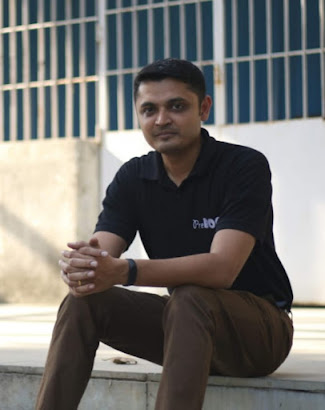This founder quit his job at Reliance, bootstrapped his startup, and has Amul as a client
“There are so many amazing products in rural areas. But the farmers lacked the necessary knowledge to scale the market of these products. They did not know about Six Sigma, quality management, ISO, barcoding, or packaging. So there was a need for some hand-holding to bridge the gap which can help scale these traditional products to international markets,” says Raj. And the journey started with that thought in mind.
“As India is a diabetic capital of the world, we started with Stevia, a replacement of sugar.” The extracts of stevia are around 300 times sweeter than sugar, but all without calories. “I had some agricultural experience prior to it. So I quit my job, went back to my village, hired some agricultural lands, and gathered some local youth around...we identified plantation materials, we worked with the government agencies to identify how to grow this plant. We also got a lot of support from the Anand Agricultural University.”
After a few years, they realized that the climatic conditions in Gujarat were not suitable to grow Stevia, so they shifted to Madhya Pradesh, Sikkim, and other regions of India. As mentioned before, he also wanted to make sure that they are making a positive impact in the rural sector. “We buy stevia directly from farmers on a contractual basis, so that they are provided with a fixed income,” says Raj. the start-up has found a great success as now they are supplying their products to even Amul.
“While doing Stevia, we came across -I would say- a gold-mine, that is the cactus plant. It was like Columbus finding the USA instead of India,” chuckles Raj. Widely found in the Saurashtra area in Gujarat, Cactus plants generally grow around the boundaries of farms. The fruit of these plants is called Prickly Pear. It has a great capability to increase hemoglobin levels. While it has been used for centuries in India, the production was mostly unorganized. “The juice that was prepared in the traditional ways had a shelf life of only 30 days, which was not feasible for a company to sell it. As by the time the product reaches a customer; it will go stale. So we identified an opportunity here.
We did a lot of study, and developed a patented manufacturing process which has increased the shelf life of the Juice to 12 months.” says Raj. “What was a market of only 400-500 units a year, today we are doing almost 40000 units a year, and we are giving 7500 man-days of work every year. And our target is to give at least a million man-days of work in the next 3 to 5 years.”
“Around 50 percent of Indian women are anemic. We got our independence around 70 years ago, but there has been no change in anemia for the last 70 years. We have eradicated polio, we have got control over TB, even probably Covid-19 will go away in the next six months or a year, but anemia has been a real problem. About six months ago about a hundred infants died in Ahmedabad, the same happened in Rajkot. But this kind of news comes into the newspaper and vanishes in a few days," says Raj.
“It (Prickly Pear) can increase the hemoglobin level in just 30 days. That is very useful for pregnant women, cancer patients, senior citizens, and others with a hemoglobin deficiency. They generally use synthetic iron-folic acid tablets which have a lot of side effects. But our product has no side effects, clinically proven, and 100 percent natural…The product already used to exist, and there are a lot of other products too. But you require someone to scientifically study it, create a manufacturing set-up, market it, and get it to the right people. So that is what we did.” They have employed women in rural areas who grow and collect these fruits. “It’s like a mother, for a mother...a rural mother collecting these fruits and getting livelihood for her kids, and a pregnant mother in an urban area consuming that so her child is born healthy.”
Started with Stevia and its leaf extracts, today they have around 42 products in their basket, and a revenue of more than 1 Cr. They are also making cold press oils like almond oil, walnut oil, groundnut oil, coconut oil, and sesame seed oil, etc. which are without any chemicals or additives. “Cancer and a lot of other diseases are increasing day by day due to the edible oils which include palmoleine and chemical additives,” says Raj.
They are also working on an ayurvedic product for wart removal. “The current way of removing a wart is the laser surgery which can cost about 15 to 20 thousand rupees, it comes back again, and also leaves a mark in that area. So we have been working on some ayurvedic formulations and we have been successful. It’s just a natural paste that you will have to apply to the affected area. In 7 days, the dead skin dries away from the roots and falls on its own. And the cost of treatment is just 200 rupees…”
“Kuttu (Buckwheat) is a gluten-free grain, which is an alternative of wheat for diabetic patients and the people who are gluten intolerant. It has been traditionally grown in the north-eastern states in India for hundreds of years, but we don’t know about that.so my effort is to bring the best things across the country, to the larger masses.”
So while their product offerings have increased, the main objective has always remained the same- providing healthier choices to the urban population while contributing to rural development. “My objective is to create one million livelihoods in my lifetime. It can only happen by value-adding to a lot and a lot of agricultural products because India is primarily an agrarian economy,” says Raj.
Written by: Mitesh Kariya
Interview by: Mitesh Kariya & Vaishali Dagar



Thankyou guys
ReplyDeleteGreat work